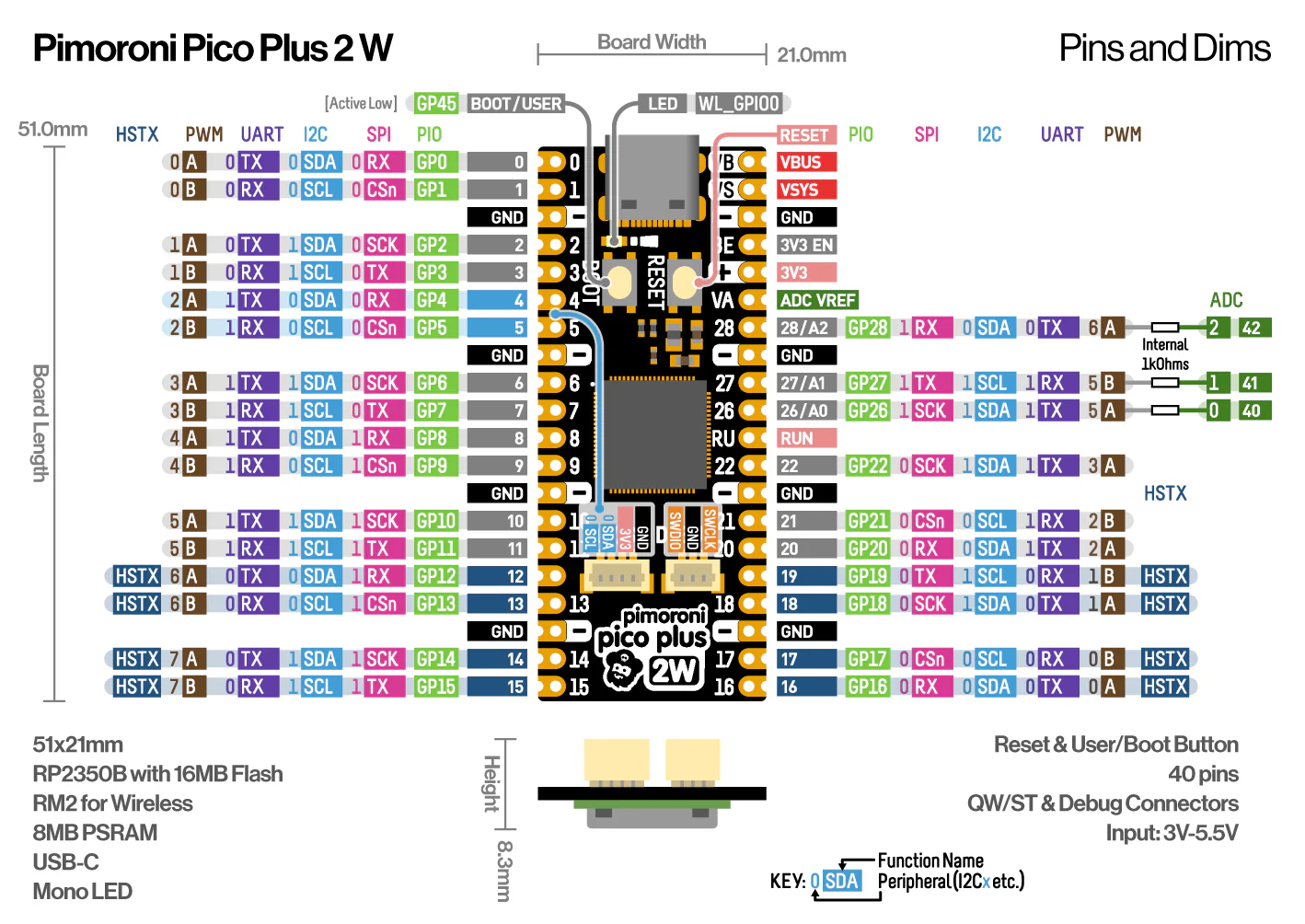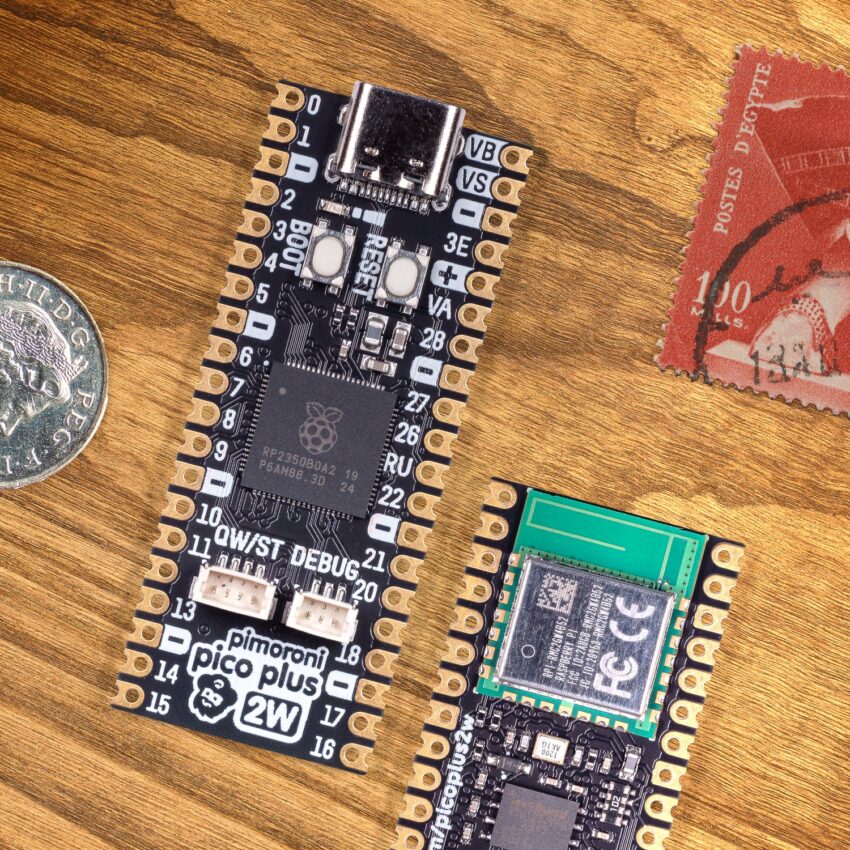
Pimoroni Pico Plus 2W features RM2 Wi-Fi and Bluetooth module
The Pimoroni Pico Plus 2W is an unofficial Raspberry Pi Pico 2 board that features Wi-Fi and Bluetooth connectivity using the Raspberry Pi RM2 module. It is powered by the Raspberry Pi RP2350B dual-core Arm Cortex-M33 microcontroller and features 16MB of QSPI flash with XiP support, 8MB of PSRAM, a USB Type-C port for power and data, and a Qwiic/STEMMA QT connector for breakout board integration. The Raspberry Pi RM2 module is a small, low-power module that is compatible with the Raspberry Pi Pico and other Pico-compatible boards, which now provide Wi-Fi and Bluetooth connectivity to these boards. The Raspberry Pi Pico Plus 2 W is a great choice for projects that require wireless connectivity, such as IoT devices, robots, and drones.
Previously we have written about various development boards based on the RP2350 MCU including the Challenger+ RP2350 WiFi6/BLE5 board, the Adafruit Feather RP2350 board Solder Party RP2350 Stamp boards, and many more feel free to check those out if you are interested in the topic.

Pimoroni Pico Plus 2W Specifications
- CPU:
- Dual-core 32-bit Hazard3 RISC-V @ 150MHz
- Up to two cores can be used at the same time
- Memory: 520KB SRAM
- Storage:
- 16MB QSPI flash with XiP support
- 8MB PSRAM
- Wireless Module: Raspberry Pi RM2 with 2.4 GHz WiFi and Bluetooth (Infineon CYW43439 chip)
- USB: USB Type-C connector for power, programming, and data transfer
- Expansion:
- 2x 20-pin 2.54mm pitch headers with 26x GPIO
- 4x 12-bit ADC
- 24 x PWM
- 2 x UART, 2 x I2C, 2 x SPI
- VBUS, VSYS, 3.3V, GND
- 3.3V I/O voltage
- Other Connectors:
- 4-pin SMD Qwiic/STEMMA QT connector for I2C
- 3-pin JST-SH connector for debug
- Misc:
- Reset and Boot button
- Green user LED connected to GPIO0 of Raspberry Pi RM2 module
- Power: 1.8 to 5.5V DC via USB-C or VSYS
- Dimensions: 53 x 21 x 8.3 mm (L x W x H, including connectors)
The company mentions that the board can be programmed with MicroPython, CircuitPython, C, and C++. You can visit the company’s GitHub repository for more information about the breakout board and supported C++/MicroPython builds.

The Pimoroni Pico Plus 2 W can be purchased from Pimoroni’s official store where it costs around $18.48. The company also offers various accessories for the Pimoroni Pico, including headers, a USB-A to USB-C cable, the Pico Omnibus, and 3-pin, 4-pin, and 8-pin JST-SH cables.
Leave a Comment